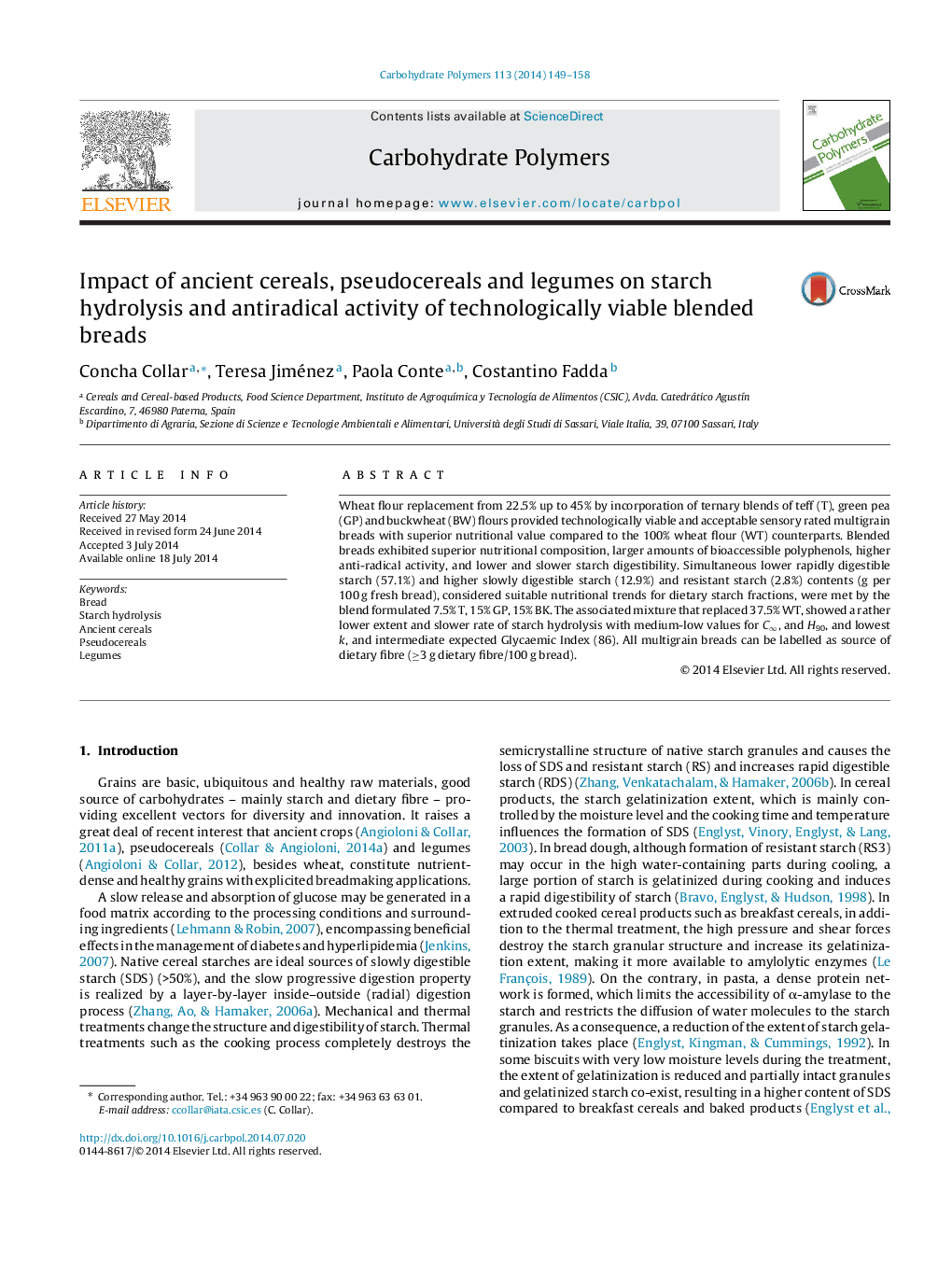| Article ID | Journal | Published Year | Pages | File Type |
|---|---|---|---|---|
| 7790872 | Carbohydrate Polymers | 2014 | 10 Pages |
Abstract
Wheat flour replacement from 22.5% up to 45% by incorporation of ternary blends of teff (T), green pea (GP) and buckwheat (BW) flours provided technologically viable and acceptable sensory rated multigrain breads with superior nutritional value compared to the 100% wheat flour (WT) counterparts. Blended breads exhibited superior nutritional composition, larger amounts of bioaccessible polyphenols, higher anti-radical activity, and lower and slower starch digestibility. Simultaneous lower rapidly digestible starch (57.1%) and higher slowly digestible starch (12.9%) and resistant starch (2.8%) contents (g per 100 g fresh bread), considered suitable nutritional trends for dietary starch fractions, were met by the blend formulated 7.5% T, 15% GP, 15% BK. The associated mixture that replaced 37.5% WT, showed a rather lower extent and slower rate of starch hydrolysis with medium-low values for Câ, and H90, and lowest k, and intermediate expected Glycaemic Index (86). All multigrain breads can be labelled as source of dietary fibre (â¥3 g dietary fibre/100 g bread).
Related Topics
Physical Sciences and Engineering
Chemistry
Organic Chemistry
Authors
Concha Collar, Teresa Jiménez, Paola Conte, Costantino Fadda,
